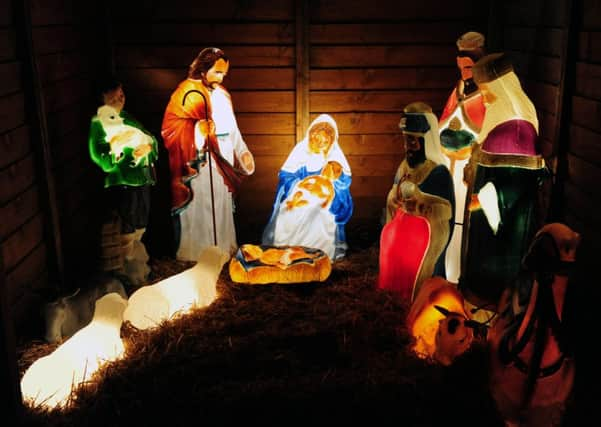Scottish words for the Christmas season


It was reintroduced as an official public holiday in 1958 (Boxing Day fell in line later, in 1974), four centuries after the celebration of Christmas fell victim to the Protestant Reformation, which took a dim view of festivities so closely tied to the Catholic Church. An Act of Parliament made it illegal in Scotland in 1640 and, a handful of anecdotal rebellions aside, that was that.
Since then, Hogmanay has been the focal point for Scots’ celebration of the festive season—this goes some way to explaining why the Scots lexicon is full of words for New Year, but much less endowed where Christmas is concerned.
Yule
Advertisement
Hide AdScots celebrated Christmas—or Yule, as it was known in the majority of regions—like most other Europeans before the Reformation: drinking, dancing, feasting and playing games. Yule, derived from the Norse word jol, was used to refer to either Christmas Day, or the broader period in which festivities took place.
The holiday season was observed officially from December 25 to January 6—the 12 days of Christmas, which in Scots were referred to as The Daft Days. As a word, Yule sometimes formed part of a greeting (“Have a cantie Yule” is to wish someone a pleasant Christmas).
Childermes/Childermas
Why is December 26 called Boxing Day? No-one has given a definitive answer to that, but its root my lie partly in the tradition of gift-giving—whether from the church to the poor, or from masters to their servants or tradespeople—on that day.
In Scotland, this day had a different name: Childermes (alternative spelling: Childermas). It was named after the Feast of the Holy Innocents, a commemoration of King Herod’s massacre of children as he sought to kill Jesus. Reformation put an end to this holiday in Scotland too.
Uphalyday
Uphalyday is a scrambled way of saying the holy (prononounced “haly”) days—the festive period—are up. The last day of the festive period is January 6. Known as Epiphany everywhere else, Uphalyday is a signifcant date in certain parts in Scotland—though the nature of these celebrations have are pretty esoteric.
On the isle of Foula, Britain’s most remote inhabited island twenty miles to the west of Shetlands, Christmas Day takes place on January 6—aka Uphalyday—because its residents, which currently number between 30 and 40, remain faithful to the Julian calender while all others in the UK have abandoned it in favour of the Gregorian version. Christmas Day is historically referred to on Foula as Auld Yule.
Advertisement
Hide AdUp Helly Aa, the fire festival that takes place on the last Tuesday of January in Lerwick, is likely an etymological descendent of Uphalyday. Up Helly Aa also marks the end of the festive season.
SEE ALSO
CONNECT WITH THE SCOTSMAN
• Subscribe to our daily newsletter (requires registration) and get the latest news, sport and business headlines delivered to your inbox every morning